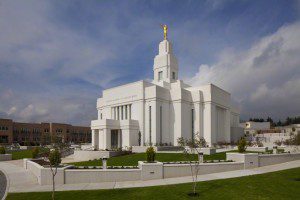
(LDS.org; click to enlarge)
Certainly in its earliest chapters, the Book of Mormon is the chronicle of a small group, essentially of a family.
Accordingly, I find inspiration in Jacob 4, today’s reading, for compiling personal and family histories, something that Latter-day Saints are strongly encouraged to do:
But we can write a few words upon plates, which will give our children, and also our beloved brethren, a small degree of knowledge concerning us, or concerning their fathers—Now in this thing we do rejoice; and we labor diligently to engraven these words upon plates, hoping that our beloved brethren and our children will receive them with thankful hearts, and look upon them that they may learn with joy and not with sorrow, neither with contempt, concerning their first parents. For, for this intent have we written these things, that they may know that we knew of Christ, and we had a hope of his glory many hundred years before his coming. (Jacob 4:2-4)
Having a sense of one’s roots, of where one comes from, of one’s background and heritage, can be of enormous value in a largely rootless society that has fetishized novelty and is characterized, more and more, by transience — and this is a gift that we can offer to those who come after us. We can also, importantly, share testimonies of our faith across generations. This is not only a possible gift, but, in many ways, an obligation of discipleship.
There is much else that might be said of this rich little chapter.
For example, Jacob’s advice (in verse 10) that we should “seek not to counsel the Lord, but . . . take counsel from his hand” resonates with me, especially at a time when, from my perspective, there are many, even within the Church, who do indeed presume to counsel the Lord, to treat him and his prophets as obtuse, as morally backward and somewhat embarrassing, and as in need of guidance from more enlightened souls (such as themselves).
I’m also impressed by the Christocentric character of this chapter, which says that all prophets have, in some sense or another, testified of the Savior. How some critics can dismiss the Book of Mormon as non-Christian continues to mystify me.










